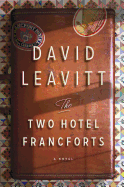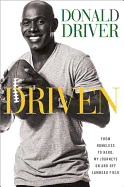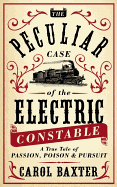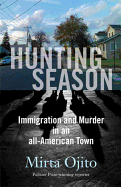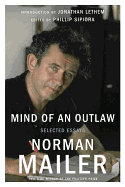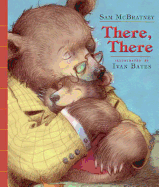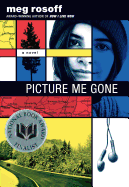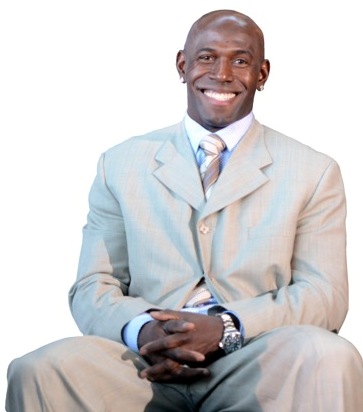 |
| photo: Lammi Sports Management |
spent his 14-year NFL career playing wide receiver for the Green Bay Packers. Born in Houston, Driver attended Alcorn State University in Mississippi and was drafted by Green Bay in 1999. Also a world-class track athlete, Driver finished his career in 2012 as the Packers' all-time leader in receptions and yards. After being a part of the Packers' 2011 Super Bowl-winning team, Driver went on to participate in--and win--ABC's Dancing with the Stars. His autobiography, Driven (Crown Archetype), is reviewed below.
What inspired you to tell your story now?
After winning the Super Bowl, becoming the Packers' all-time leading receiver and winning Dancing with the Stars, the timing just felt right. I felt like after finishing up one part of my life, I could look back at what got me here.
You revisit some fairly dark places when writing about your youth in Houston.
When you're young and everyone around you is dealing drugs or stealing cars, it's all you can see. You think that that's just the way things are supposed to be. You see your friends running around in their new Jordans, wearing nice clothes and you just think, "That's what I want; I'll do what they do and make a living for myself."
When you're a kid in that environment, you don't worry about getting caught. You figure it's six months in juvenile detention and then you're out. You don't think about what happens if you get caught again, and that six months ends up being life in prison. If you hurt some people, you hurt some people.
What changed your outlook growing up? Family seems to play a major role.
Definitely. For me, it was about asking myself if I want to be talked about in the past tense or in the present tense. Meeting [my wife] Tina made that decision for me. She's my best friend; I can talk to her about anything and she's always willing to listen. Sometimes that's all you need--someone to listen to you. I realized I could go back out on the street or change for the better. God and Tina made that decision for me.
When we first started talking about having kids, I told her I didn't want to put them through the pain and the suffering I went through. I never wanted to have my kids have to ask me, "Daddy, what are we going to eat today? Daddy, why did the lights get cut off? Daddy, where are we going to sleep today?"
Growing up in Houston, I never really had a father figure, and we went through those things. Getting locked out of our apartment, having the power cut, sleeping in a U-Haul for a month. I didn't want to put my kids through that. After the Packers offered me a five-year deal, Tina and I decided to go ahead, knowing that we had stability. We finally had Christian in 2003, and just holding him changed everything for me.
What is your relationship with your father like?
My father made me the man who I am. I write about him not being there for me as a kid, but as we got older, he tried to mold that relationship. And he did. He would always call me on Saturday before a game. He showed me how to love my wife; he wasn't there for my mother--even though he loved her, he didn't give her all the love that she needed. Most importantly, he taught me that you love your kids unconditionally.
At the end of the day, family's family, and that's all you have. I love my family more than anything else. The one thing my dad really wanted was for us all to be close, and within the last year all 17 of us have gotten much closer [Donald's father, Marvin, died in August]. One thing my father taught me is that it's easy to father a kid; it's hard to be a father to that kid. My father was a father to all of us.
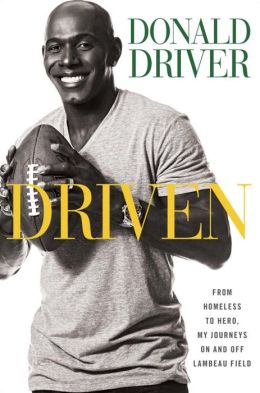 Our inner sports fanatic needs to talk football. You'd been so close to the Super Bowl in the past, you finally got there and then were injured and had to watch the rest of the game from the sidelines--what was that experience like?
Our inner sports fanatic needs to talk football. You'd been so close to the Super Bowl in the past, you finally got there and then were injured and had to watch the rest of the game from the sidelines--what was that experience like?
At first it was devastating. I made my second catch of the game over the middle, but got bent backward when James Harrison tackled me. I remember James looking at me and asking if I was all right, and all I could do was shake my head "no." In the locker room, when they came and told me that I was done for the day, that was the toughest thing I've ever felt.
I didn't want to come out of the locker room at first, but I knew I couldn't leave my receivers. I remember sitting down with Jordy [Nelson] and James [Jones] and telling them to just keep doing what we'd been doing all season, and that's just catch the ball. I think me coming out of that tunnel really made a difference and motivated those guys. On the sidelines they came up to me and said, "Drive, we're going to win this for you."
The Packers won and you finally got to touch that trophy. What were you feeling?
It was everything all at once--you're relieved, you're excited, you don't know what to feel. It's like being a little kid again. I told the media before the game that I wanted to do what [Packers' legend and NFL Hall of Famer] Reggie White did--take that trophy to the end zone, hold it up for the fans and let them know we're bringing it back to Titletown. And I got to do that. That's something you can never take away from me.
You went from winning a Super Bowl trophy to winning Dancing with the Stars--that's quite a transition.
It was one of the greatest experiences of my life. I've been watching the show since season one, and I used to joke to Tina that I can dance better than anyone, and if I ever got on the show, I was going to win it, and I did. I trained for it just as if I was playing football. And my kids loved it, Tina loved being in Hollywood; it was just a great experience.
Now that your playing days are done, what are you up to? We really enjoyed reading about your charitable work.
We started the Donald Driver Foundation in 2000 as a private foundation and went public two years later. Someone gave my mom an opportunity, someone gave me an opportunity, and I felt that I had to help pass that along. It puts a smile on my face every day knowing that I've helped a mother transition from a homeless shelter into an apartment or a house. We give $1,000 scholarships to underprivileged kids if they can maintain a 3.0 GPA; we provide computer scholarships to kids from low-income families attending a two- or four-year college.
We run a program for recipients of federal free lunch aid called "Blessings in a Backpack," to allow them to have food to eat on the weekends. On Fridays, those students pick up a backpack with enough food to feed themselves and their families. That way they're not coming to school on Monday hungry and too focused on finding something to eat to focus on their classes.
Have you thought about coaching or maybe doing broadcast work?
I've gotten offers from networks to be an analyst, but I retired to be with my family. It's time for me to be there for them when they need me; I don't need to be on the road for a game when they need me. My family is everything I have. I don't have an exact idea what's next for me--I've been talking with Nickelodeon about turning my children's books, the Quickie series, into a TV series.
Finally, we have to know--do you ever get the itch to play again?
As a football player, I love football. I lived and breathed football my whole life, but at the end of the day I love my family more. --Benji Taylor, freelance writer, student, blogging at Destructive Anachronism
Donald Driver: From the Streets to the Super Bowl
 of locusts, sweat- and sex-damp sheets, a milky moon--but he slowly built in chilling curves that threw me into one of the best books of 2011. Buehlman followed this with Between Two Fires; our reviewer said it starts out as a medieval variation on True Grit, but shifts into horror with welcome echoes of early Stephen King. October brings The Necromancer's House, with a sexy but murderous rusalka (a Slavic water nymph), a handsome warlock perhaps in over his head, and an unstoppable evil in a blend of horror and urban fantasy.
of locusts, sweat- and sex-damp sheets, a milky moon--but he slowly built in chilling curves that threw me into one of the best books of 2011. Buehlman followed this with Between Two Fires; our reviewer said it starts out as a medieval variation on True Grit, but shifts into horror with welcome echoes of early Stephen King. October brings The Necromancer's House, with a sexy but murderous rusalka (a Slavic water nymph), a handsome warlock perhaps in over his head, and an unstoppable evil in a blend of horror and urban fantasy.



 Our inner sports fanatic needs to talk football. You'd been so close to the Super Bowl in the past, you finally got there and then were injured and had to watch the rest of the game from the sidelines--what was that experience like?
Our inner sports fanatic needs to talk football. You'd been so close to the Super Bowl in the past, you finally got there and then were injured and had to watch the rest of the game from the sidelines--what was that experience like?